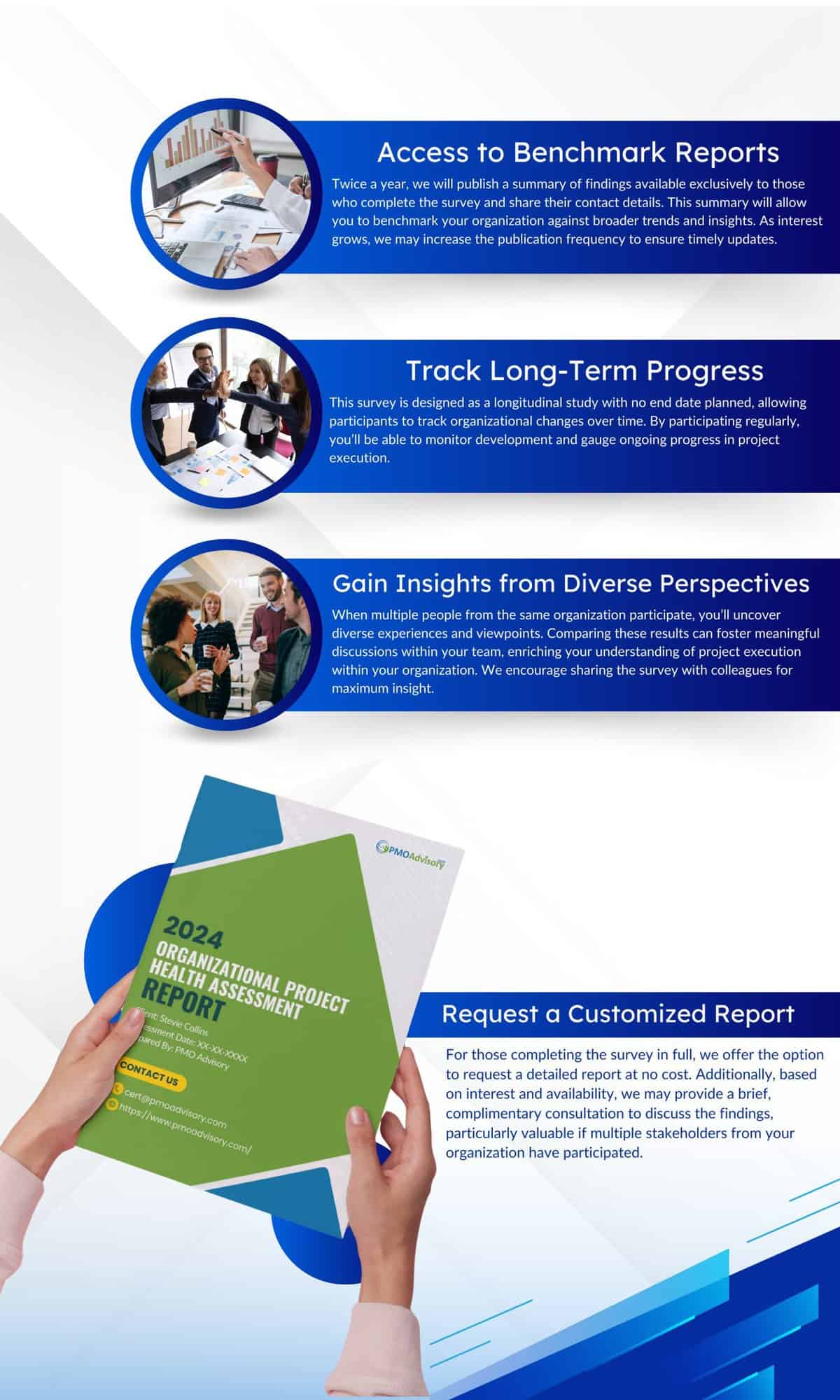About Organizational Project Health Assessment Study
Written by Brian Williamson
Purpose of the Study
The Organizational Project Health Assessment (OPHA) provides an efficient, comprehensive means to assess an organization’s project management health without being overly complicated. It assesses key dimensions—strategic alignment, organizational processes, environmental factors, and project-specific metrics resulting in a Project Health Score (PHS) from 1 to 100%, pinpointing strengths and improvement areas in project execution. Recognizing that project health is a pivotal indicator of both project-specific and strategic success, this study presents a structured, holistic model for assessing an organization’s project ecosystem. Through OPHA, organizations can gauge their ability to deliver projects effectively, align with broader strategic goals, and foster resilience against dynamic market demands.


Value of the Study: The OPHA framework delivers value by enabling organizations to transition from basic project metrics to a nuanced understanding of the interrelated aspects that define project health.
Key areas measured include project alignment with strategic objectives, the efficacy of organizational processes, and the sustainability of resource allocation practices. OPHA also evaluates stakeholder engagement, environmental adaptability, and decision-making frameworks, making it a versatile tool to inform project portfolio management (PPM) and enhance overall organizational resilience. Through OPHA, leaders and project managers gain actionable insights into how resource allocation, team dynamics, and decision-making structures contribute to sustainable project execution. This assessment is indispensable for organizations striving to refine processes and maximize resource utilization while maintaining strategic coherence and fostering stakeholder trust.
Contribution to Research and Practice
The OPHA framework addresses a critical gap in project management research by integrating both quantitative metrics (i.e., project success rates) and qualitative factors (e.g., stakeholder engagement and cultural adaptability). By blending social science principles with project management fundamentals, this framework bridges the existing divide between operational metrics and strategic objectives. It supports a growing body of research that links effective project health with sustained competitive advantage, organizational innovation, and adaptability in complex environments. As organizations increasingly turn to project-based work as a core means of executing strategy, OPHA offers a vital research-backed method for assessing and enhancing project health. Its emphasis on adaptability and resilience makes OPHA not only a measure of current health but also a barometer of long-term organizational success.
This study contributes a validated framework to the field, paving the way for further empirical research on project health as a predictor of organizational effectiveness and strategic business execution. Through comprehensive measurement tools and structured evaluation processes, OPHA equips practitioners and researchers with a reliable method to study and improve project health across industries.
What’s in It for You:
The Benefits of Completing the Survey
Participating in this survey offers multiple benefits, not only in contributing to important research but also in providing actionable insights for you and your organization. Here’s what you can gain:

About the Researchers
Dr. Brian Williamson is the Executive Director with PMO Advisory and a Visiting Lecturer in Leadership and Management Studies at the University of Oxford. A global authority in business transformation, employee experience, and purpose-driven project management, he has authored multiple books.
Dr. Te Wu is the CEO and CPO (Chief Project Officer) with PMO Advisory, a Project Management Institute’s (PMI) Authorized Training Partner. The company specializes in project, program, and portfolio management and strategic business execution through its training, conferences, and consulting services. Te is also a Professor at Montclair State University.

